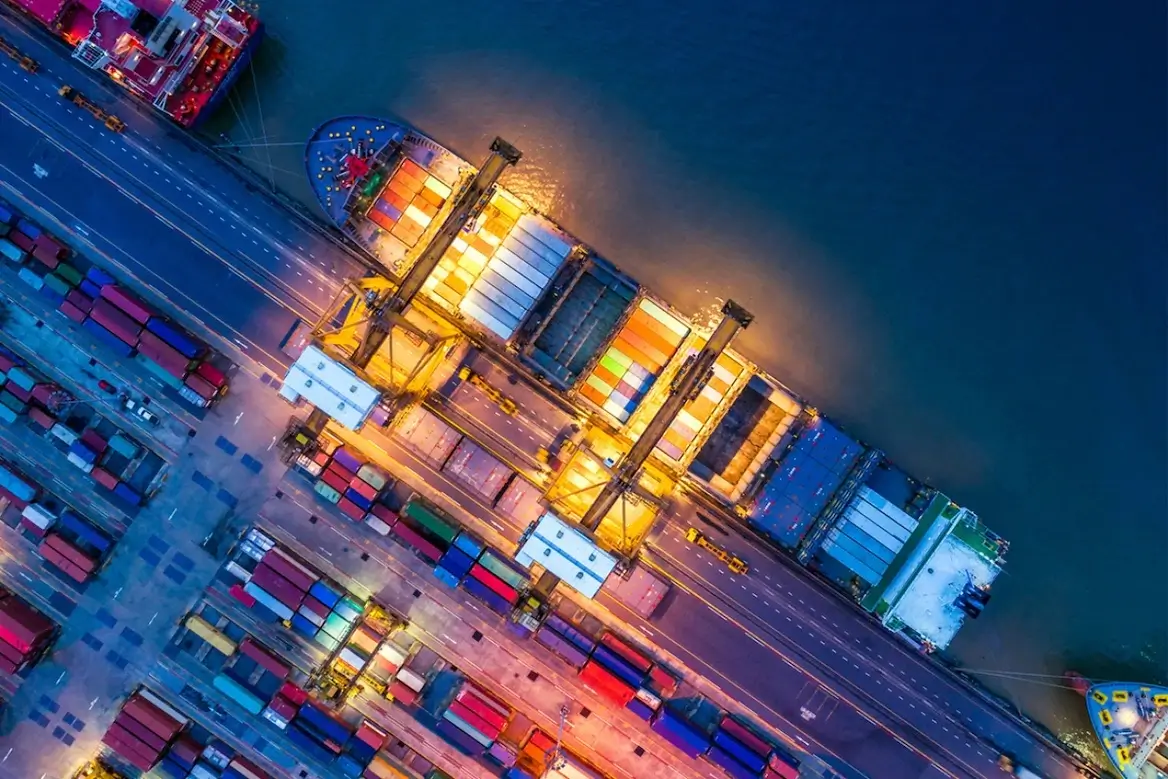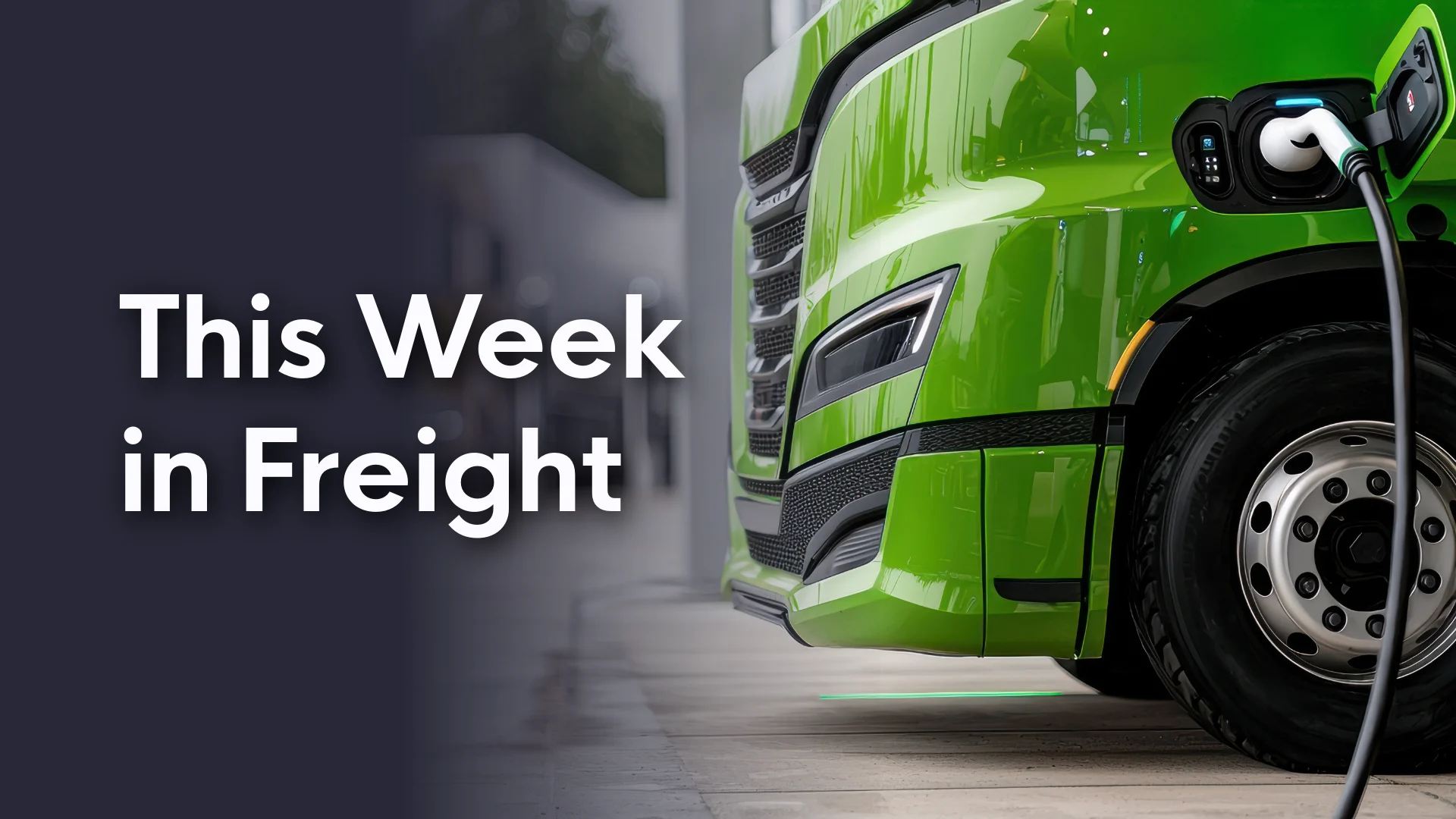Haulage and freight forwarding come with plenty of risks. From cargo damage on the road to customs delays overseas, even the best-prepared operator can be caught out. Freight forwarder insurance provides a financial and legal safeguard, helping hauliers and forwarders protect themselves against claims when something goes wrong.
With rising supply chain vulnerability in recent years, this type of cover has become an important part of running a sustainable business in the freight industry.
What we’ll cover
Fleets, bookings, subcontractors, compliance & payments.
With HX, you can manage them all in one place.
What is freight forwarder insurance?
Freight forwarder insurance (sometimes called freight forwarder liability insurance) protects businesses that arrange or handle cargo transport. Unlike standard cargo cover, it accounts for the wider responsibilities freight forwarders and hauliers have once they accept goods.
This protection extends across modes such as road freight transport, air, sea, and rail. Forwarders typically don’t own the goods they manage, but they can still face claims for damage, loss, or delays. That’s why insurers often require documentation such as bills of lading and waybills when assessing claims.
Why opt for freight forwarder insurance?
Accountability is a key term in the world of freight. From the moment goods are handed over, the freight company is responsible for its safety.
There have been instances where unforeseen events, like harsh weather conditions or mishandling, led to significant cargo damage.
Remember the Ever Given container ship that ran aground in the Suez Canal in 2021? It blocked one of the world’s busiest waterways for six days, causing massive disruption in global trade, affecting the supply chain, and leading to hundreds of claims for damage to goods, late delivery, and contractual penalties.
With high compensation amounts at stake, insurance for freight forwarders becomes vital. Freight forwarder insurance alleviates the financial burden on the company, offering coverage against these kinds of unexpected setbacks.

What does freight forwarder insurance cover (and what it doesn’t)?
While every policy is different, freight forwarder insurance usually includes:
- Damage or loss of goods during transit
- Third-party liability and legal defence costs
- Customs delays, penalties, and related expenses
- Abandoned or uncollected cargo
- Fires, explosions, or operational accidents
- Recovery, storage, and re-delivery costs
- Claims raised by both shippers and receivers
When a claim is filed, insurers will often review cargo type, transport mode, subcontractor details, and supporting documents such as bills of lading and waybills.
It’s equally important to understand what isn’t covered. Common exclusions include:
- War risks and political unrest
- Cyberattacks affecting documentation or tracking systems
- Gross negligence, such as poor packaging by the shipper
- Certain high-risk regions unless extra cover is purchased
These exclusions are especially relevant for those offering specialist freight forwarding services, such as moving perishables, hazardous goods, or fragile shipments.
Choosing your freight forwarder insurance
1. Identify your needs:
The first step in the process is to gain a clear understanding of your shipment requirements. The specifics of insurance for freight forwarders can vary significantly based on several factors:
- Transportation Mode: Whether you’re dealing primarily with road transport, sea freight, air, or rail will affect the type of insurance coverage you’ll need when freight forwarding. Each mode has its own set of risks, and the policy should reflect that.
- Associated Risks: Beyond transportation, consider other potential hazards. Are you offering specialist services, like transporting perishables or fragile items? Are there geopolitical risks in certain regions you ship to? Such details can significantly influence the kind of protection you should be seeking.
- Customs Duties: Goods travelling internationally may incur customs duties, and complications can arise. Some insurance policies may provide coverage for unforeseen customs expenses and delayed customs clearance, or you might require an add-on for such services.
2. Examine inclusions and exclusions:
Understanding the full scope of your Freight Forwarders Liability insurance policy is vital:
- Coverage details: Thoroughly review the policy details. Familiarise yourself with the specific incidents, situations, and damages the insurance covers.
- Potential gaps: Identify any areas the policy doesn’t cover. These exclusions can range from natural disasters to particular modes of transport or even specific regions/countries.
- Tailored add-ons: If you identify gaps that concern you, discuss these with your insurance provider. They often offer additional coverage options that can be added to your policy, ensuring you get comprehensive protection.
3. Verify insurer credibility:
Choosing a reputable insurer is important:
- Check reviews and testimonials: Existing clients’ experiences can provide invaluable insights. Look for reviews that specifically address claim processing times, customer service, and the insurer’s overall reliability.
- Look for certifications: Recognised industry certifications like FORS accreditations can indicate the insurer’s commitment to maintaining high standards and ethical practices.
- Beware of red flags: Extremely low premiums, lack of clear policy details, and aggressive marketing tactics can all be warning signs of potential scams or unreliable providers.
Conclusion
Shipping goods can be full of surprises, from sudden storms to unexpected world events. But with the right freight forwarder cargo insurance, you can feel more at ease, knowing that your customers’ freight and your money are safe.
If you’re unsure or have questions, just chat with your insurance company. They’re there to help you out, every step of the way.
Once you’re set up, you’ll need subcontractors to deliver your freight. Haulage Exchange is the UK’s largest freight forwarders network with over 60,000 verified vehicles available at a moment’s notice, enabling you to meet ever-changing customer demand and grow your freight forwarding company.
Frequently asked questions
Is freight forwarder insurance legally required in the UK?
It isn’t a legal requirement, but many shippers and clients expect forwarders and hauliers to hold it. Without it, you could face substantial claims if goods are lost or delayed.
What’s the difference between cargo insurance and freight forwarders liability insurance?
Cargo insurance protects the goods themselves. Freight forwarders liability insurance protects the forwarder or haulier from claims if those goods are lost, damaged, or delayed while in their care.
Does freight forwarder insurance cover subcontractors?
Yes, many policies extend to subcontracted hauliers, but you’ll need to confirm this. Always check your policy wording and ensure liability is included for third parties carrying loads on your behalf.
How much does freight forwarder insurance cost?
Costs depend on shipment type, regions served, and claims history. For forwarders handling high-value goods or specialist services, premiums will generally be higher.
What documents do I need to file a claim?
Most insurers request a bill of lading, waybill, invoices, and subcontractor details. Keep accurate records, as incomplete paperwork can delay or even prevent settlement.




